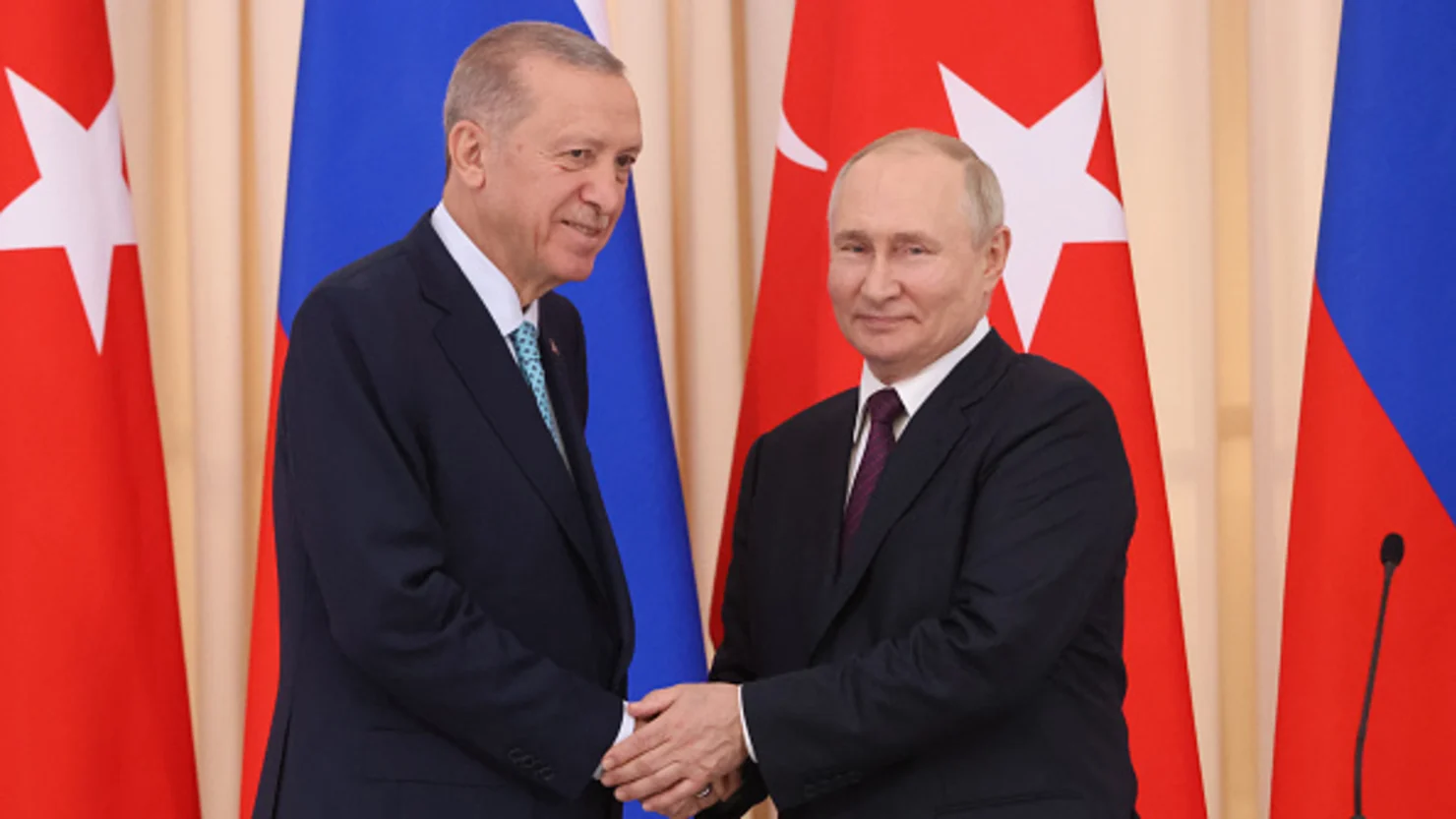Turkey, a NATO member and once a hopeful candidate for the European Union, has recently made a bold move by applying to join the BRICS bloc, which consists of Brazil, Russia, India, China, and South Africa. This decision has raised eyebrows across the global political spectrum and signals a significant shift in Turkey’s foreign policy. It’s an indication that Turkey seeks to reposition itself in a rapidly changing geopolitical environment, balancing its longstanding relationships with Western powers while forging new alliances with the East.
What Is BRICS?
BRICS is an economic and political alliance formed in the early 2000s by five major emerging economies. The bloc aims to promote cooperation in economic growth, trade, and development. Unlike the G7, which is composed of the world’s most advanced economies, BRICS represents countries from the Global South and accounts for over 40% of the global population. The group is gaining increasing influence in world affairs, with recent discussions about expanding its membership to include countries like Saudi Arabia, Iran, and now Turkey.
Turkey’s Motivation for Joining BRICS
Turkey’s desire to join BRICS stems from multiple factors. Domestically, Turkey is navigating economic challenges, such as high inflation and currency depreciation, and sees BRICS as a platform to diversify its trade partnerships and attract investment. Additionally, BRICS offers access to the New Development Bank, which could provide crucial financing for Turkey’s infrastructure projects.
From a geopolitical standpoint, Turkey’s frustration with the European Union has grown over time, especially as its EU membership talks have stalled. At the same time, Turkey’s relations with the United States have been strained by various issues, such as its purchase of Russian S-400 defense systems and divergent policies in Syria. By joining BRICS, Turkey aims to assert its independence and strengthen ties with non-Western powers, particularly Russia and China, which are key BRICS members and have growing influence in global affairs.
The Impact on Turkey’s Relations with the West
Turkey’s potential membership in BRICS poses significant challenges to its relationship with the West. As a NATO member, Turkey has traditionally been a strategic partner for the United States and Europe in maintaining stability in the Middle East and countering Russian influence in Eastern Europe. However, its growing alignment with Russia, both economically and militarily, raises concerns about where Turkey’s allegiances truly lie.
The West is likely to view Turkey’s BRICS bid with a mix of caution and skepticism. For NATO, this move could complicate an already delicate relationship with Ankara, especially if Turkey continues to deepen its ties with Russia and China, two of NATO’s main geopolitical competitors. While the United States has publicly stated that it respects Turkey’s decision to pursue membership in BRICS, the long-term consequences could strain Turkey’s role within the Western alliance.
Moreover, Turkey’s BRICS bid reflects a broader trend of middle powers seeking to play a more independent role in global affairs. Countries like India and Brazil have managed to maintain positive relations with both the West and BRICS, and Turkey may be looking to adopt a similar model of multipolar diplomacy. However, Turkey’s historical and geographic context makes this balancing act far more complex.
Geopolitical Ramifications
If Turkey’s application to BRICS is successful, it could accelerate the shift toward a multipolar world order. The inclusion of a NATO member in BRICS would symbolize the growing desire among countries to move away from Western-dominated institutions and create new avenues for economic and political cooperation.
For the West, this move highlights the challenges of maintaining influence in a world where emerging economies are increasingly assertive. BRICS, with Turkey as a member, could act as a counterbalance to Western-led initiatives like the G7 and could amplify calls for a more equitable global economic system.
On the other hand, Turkey’s involvement in BRICS could also serve as a bridge between the two worlds, offering opportunities for dialogue and cooperation between the West and the East. While Turkey’s ties with Russia and China may deepen, it is unlikely to abandon its Western alliances entirely. Instead, Turkey appears to be pursuing a strategy of diversification, leveraging its unique position at the crossroads of Europe, Asia, and the Middle East to maximize its influence on the global stage.
Conclusion
Turkey’s bid to join BRICS marks a significant moment in its foreign policy, as it seeks to carve out a more independent role in the international arena. While this move may strain relations with its Western allies, it also offers Turkey an opportunity to strengthen ties with emerging economies and assert its role in a multipolar world. The outcome of this bid will not only shape Turkey’s future but also have far-reaching implications for global geopolitics.
Source link
